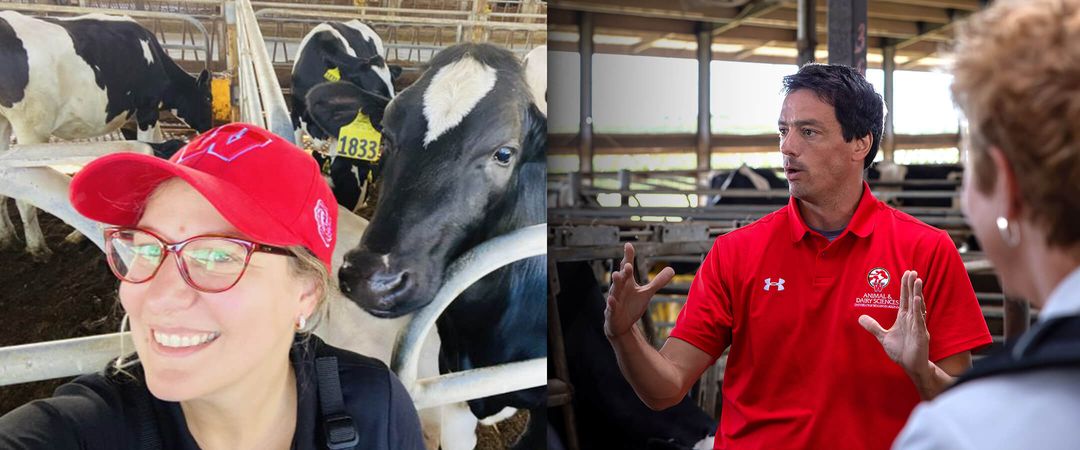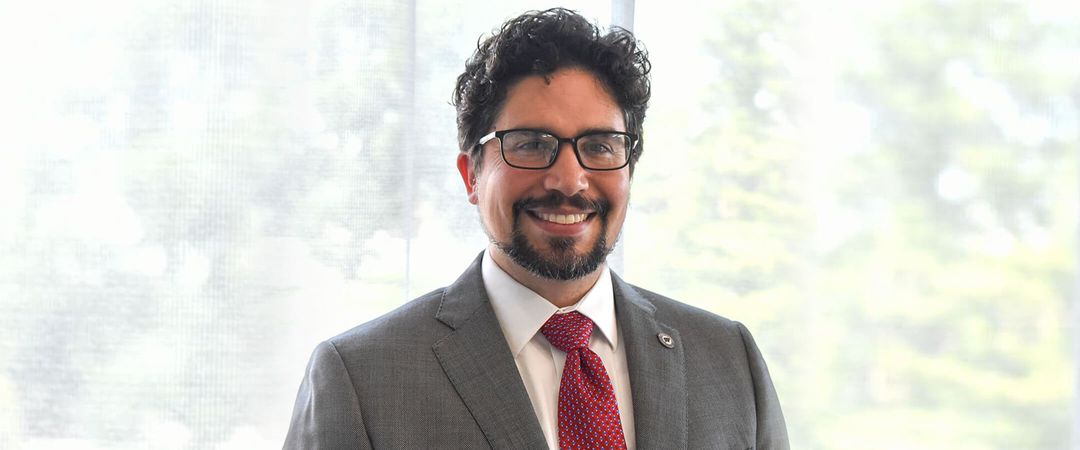Dr. Sylvestra Ramirez ’05 had no idea a childhood injury would propel her toward a path and passion for physical therapy.
Growing up in Milwaukee, Wisconsin, Ramirez thought her calling was figure skating and did all she could to study the art form. One summer, she decided to try the outdoor equivalent — rollerblading — and fell, which dislocated her patella and put her in physical therapy.
“My stubbornness of not wanting to look uncool in knee pads and a fall is all it took for me to land in physical therapy,” she says. “I saw a whole different side of human movement. It taught me that after an injury, assessment of muscular strength, flexibility, and movement patterns was essential in rehabbing. I was sold.”
That incident became a moment of inspiration for her and drove her to attend UW–Madison. She then went on to earn a doctor of physical therapy in 2010, as well as a master’s of women's health in 2011, both from the Rosalind Franklin University of Medicine and Science.
Now, the 37-year-old owns and operates the first bilingual physical therapy clinic in Milwaukee.
Her clinic, Physical Therapy of Milwaukee (PTM), which opened in 2013, provides personalized rehabilitation care for English- and Spanish-speaking patients. The clinic, located in the southern region of the city, offers both in-clinic and telehealth services and accepts all major health insurances, including Medicare and Medicaid. For those who do not have insurance, the clinic offers payment plans.
It was important to Ramirez, who is of Hispanic descent, to open the clinic with a bilingual focus.
“Growing up, I felt and saw firsthand that health care was not set up to service the Hispanic population that is culturally and linguistically different,” she says. “For me, it was a personal goal, as I have witnessed the Hispanic community in Milwaukee continue to grow year after year. I made the decision to play a larger role in improving the health and wellness of the Milwaukee community via clinic ownership.”
Through her clinic, Ramirez wants to respond to a community that needs health care to speak to them “figuratively and literally.” While she recognizes the barriers to access that her patients regularly face — and the uphill battle that comes with working in health care — she believes her bilingual clinic can help bridge some of those gaps.
“Our daily successes at PTM — seeing a patient walk after back surgery, assisting in post-rehabilitation care after a work injury, and working with young athletes wanting to return to soccer — continue to fuel our mission of providing bilingual physical therapy care that a patient and their families understand,” she says. “This in turn results in decreased insurance costs, improved patient outcomes, and quicker return-to-function. It’s a win-win for both the patient and insurance company.”
Opening PTM was no easy feat, and Ramirez faced rejection time and time again, but she persevered.
“One of the most difficult things I had to get used to is being told no,” she says. “As I approached banks for start-up capital or contracting with insurance companies, and being told no over and over again, I quickly learned that I couldn’t take it personally. I had to pivot, reassess my goals, and move forward. I saved money for three years working various jobs, and through family support, financed the start of Physical Therapy of Milwaukee.”
Another difficulty was the journey of becoming a business owner. For Ramirez, who spent most of her career focusing on the medical aspect, becoming an entrepreneur required a different set of skills. She had to quickly learn how to run a successful business, in both English and Spanish.
To do so, she attended conferences on entrepreneurial education and was often the only Hispanic woman in the room. That did not stop her. Though she did fear failure, she continued working harder to achieve her goals.
“It took a combination of intense preparation, personal growth, and specific intentions,” she says.
When her clinic faces challenging moments, she and her team stick to their commitment to combating adversity, which helps feed their success.
“At PTM we continue to push the boundaries in providing physical therapy, many times going up against the insurance companies to advocate for care for a patient that has been denied additional visits,” she says. “Our success has been a mixture of hard work, strategic planning, some out-of-the-box thinking, and always listening to our patients.”
Their hard work and efforts paid off in 2017 when PTM was awarded the Wisconsin Minority Business Award for Outstanding Small Business. To Ramirez, the recognition was a chance to showcase the “behind the scenes” work they do.
“What an honor it was for our staff, our patients, and myself,” she says. “We are grateful for the opportunity to advocate for the health and wellness of the Hispanic community. This is a torch we carry proudly.”
PTM is now in its seventh year, and as Ramirez prepares to open a second clinic this summer, she is reminded of how UW–Madison helped her get to where she is now.
“UW–Madison set me up for success,” she says. “Being of Hispanic descent, it was hard to convince my parents that I wanted to study in Madison. UW–Madison taught me to see the world differently, despite it only being a short drive from Milwaukee. I met people from all cultures and walks of life. It opened up my eyes to possibilities if you are willing to be a change agent.”
Ramirez encourages current students and recent graduates to challenge themselves and push beyond boundaries.
“I realized at an early time in my career that pushing the boundaries within myself was something that I had to do on a daily basis to be a trailblazer in business and in this profession,” she says. “I continuously make decisions that affect my staff and my patients first before my own needs. This is how I intentionally choose to move PTM forward as a business owner. I consciously accept the challenges that are presented on a personal and professional level, as a way of growing into my higher self. I encourage you to push away self-doubt, follow your passion, think like a trailblazer, continue to leave an impact everywhere you go. Think about the legacy that you want to leave in your community, and work from there.”
Ramirez also understands the importance of paying it forward to help others achieve their goals.
“I now mentor women from minority populations who are interested in starting a business and/or becoming a [physical therapist],” she says. “I’m determined to pay forward the gift that my own mentors gave me. Being of service to others is a motivator that is much more powerful than fear.”









